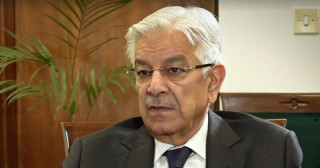
DOUBLED RETURNS: 6% is the minimum deposit rate, while around 12%
is the rate of return on Treasury Bills. DESIGN: ALI DARAB
http://tribune.com.pk/story/375497/raising-funds-government-opens-doors-to-private-lenders/
ISLAMABAD: The government has decided, in-principle, to allow individual depositors to invest in government securities through commercial banks; a move aimed at boosting declining savings and ensuring almost double returns to investors against what they currently receive from banks.
Individual depositors will now have the option to ask banks to invest their deposits in government security papers, sources in the Finance Ministry have said. In return, banks will charge a nominal service fees on these investments.
The government had earlier allowed pensioners and trust funds to invest in national saving schemes in a bid to give them better returns on their savings.
Authorities have completed consultations with commercial banks, and the latter have endorsed the proposal. The decision will take effect from July 1, the first day of fiscal year 2012-13.
Central bank data shows that, till April, scheduled banks held Rs5.93 trillion in deposits; higher by Rs800 billion or 15.6% over the corresponding month last year. Currently, the minimum deposit rate is 6% raised only recently from 5%.
On May 2, the federal government issued treasury bills worth Rs150 billion with three- or six- months maturity period. The three-month papers were sold at 11.87%, while the mark-up on six-month papers was 11.94%, according to the State Bank of Pakistan.
By obtaining deposits at the minimum rate of 6%, banks invest this money in treasury papers at almost double rates, securing hefty profits. Almost half of banks deposits have been invested in government papers. The ratio is 65% in case of the two largest banks in the country, according to the central bank.
The government remains the largest borrower due to its burgeoning expenses; which have outstripped revenues at an unprecedented pace. According to finance ministry documents, from July through March the federal governments budget deficit swelled to Rs1.39 trillion 6.6% of the total economy and the highest ever in nine months. The deficit includes Rs391 billion in payments to reduce circular debt from last year.
According to a recent report by the International Monetary Fund, Pakistan will require Rs7.3 trillion, or 30.3% of its Gross Domestic Product, to meet debt and deficit liabilities for the coming financial year.
Low savings have become increasingly problematic for the country and have resulted in low investment and higher unemployment. Against every hundred rupees earned, Pakistan saves a little over Rs13. The same ratio is 45.5% in China and 29% in India. Average South Asian saving rates are 26%, double Pakistans saving rates.
Pension fund
Sources said the government has also decided to establish a pension fund for civil servants. The fund was announced last year but could not be implemented, they added. The fund will serve only the newly-inducted employees.
If employees want to avail pension after retirement, they will have to surrender a part of their salaries; while in return, the government will also contribute a share to double what the civil servant will contribute, the sources said.
PERSONAL NOTE: The folks who have been following me and interacting with me, I want those folks to guess what this move is..
DONT SCROLL DOWN TILL YOU HAVE MADE UP YOUR MIND....
.
.
.
.
..
.
.
.
.
.
.
.
.
.
.
.
.
.
.
.
.
.
.
.
.
.
.
.
.
.
Thats right! This is a desperate move by the Govt to cut off the middle-man (Commercial Banks) and get the most out of the savings of ordinary citizens. No matter how much rate you get on these Deposit accounts, they will NEVER be higher than the inflation rate! Do not save anything in RUPEE or RUPEE denominated assets. Folks we are seeing the final attempts by the Govt to suck on the last few drops of blood of the ordinary citizens. I am starting to wonder if a Pakistani default would lay the ground for Greece to default.



































